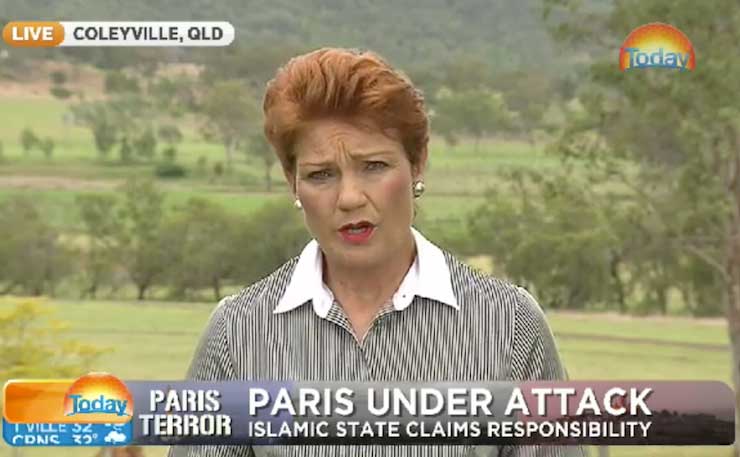The recasting of One Nation senator Pauline Hanson by a sycophantic media as flawed but holding valid concerns is now complete, writes Michael Brull.
It didn’t take long. A few months ago, Pauline Hanson was a marginal figure, a serial loser of Australian politics. No-one took her seriously, and few Australians thought much of her.
Only a year ago, she once again made the list of Australia’s 10 most hated public figures (she made it to number 6). Yet a few weeks ago, a poll by Essential found that her views now had significant community support across Australia.
42 per cent of Australians agreed “with a lot of what Pauline Hanson says and it’s good to see her back in Parliament”. 16 per cent strongly agreed. 62 per cent said she speaks for a lot of ordinary Australians. Though One Nation received only 4.3 per cent of Australian votes – about half that of the Greens – they had suddenly become the authentic voice of Australians.
Where Hanson was once toxic, unpopular and marginal, now she is centre stage.
How was Hanson rehabilitated so quickly in public opinion? How did she go from being one of Australia’s most hated public figures, to less than 5 per cent of the vote, to someone almost half of Australians think is on the right track?
A lot of the credit for that particular achievement must go to the political and media elite of Australia, who have worked tirelessly to defend and legitimise Hanson and her “concerns”.
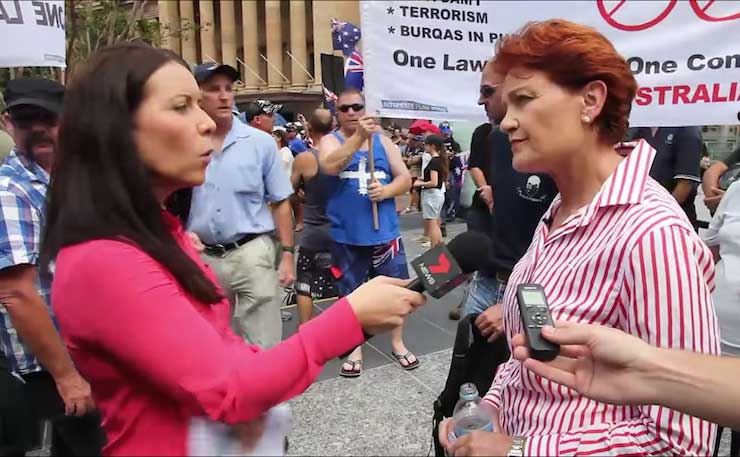
In the lead-up to the election, Hanson benefited from regular paid appearances on Sunrise. As documented in a great article at News.com.au by Rohan Smith, Hanson was invited on to discuss a range of issues. Today also had her on as a guest, offering her sympathetic space in the wake of the terrorist attacks in Paris last year.
Hanson’s favourite TV presenter was Paul Murray from Sky News, a man who has “always given me a fair go”. Kyle Sandilands and Jackie O likewise had a friendly chat with Hanson shortly before the election.
Sandilands characteristically defended her infamous comments that Australia was being swamped by Asians. And a day before the election, Alan Jones identified Hanson as a “very legitimate candidate”, a “very courageous woman”, well-liked because she “says it as she sees it”, and increasingly, “she says it intelligently”.
After the election, the media and political rehabilitation of Hanson stepped up. Sky News naturally continued to back Hanson. Paul Murray devoted great efforts to defending Hanson from her critics. Mark Latham talked about how Hanson’s success was a “phenomenal story of human endurance”, identifying her as a patriot who was “incredibly gutsy”.
Shows like Sunrise continued to feature Hanson as a guest. Today asked Facebook followers if Hanson was like Nelson Mandela.
In the right-wing opinion pages of the Murdoch papers, the usual bloggers climbed aboard the Hanson bandwagon. Miranda Devine identified Hanson as a “maverick” bravely defying the “politically correct bullies”. Andrew Bolt became one of the most enthusiastic backers of Hanson.
Where Hanson’s media supporters started out as the most aggressive warriors of the Murdoch media, this soon expanded. Former Prime Minister John Howard, once reviled for refusing to criticise Hanson, now told the media not to be too critical of Hanson.
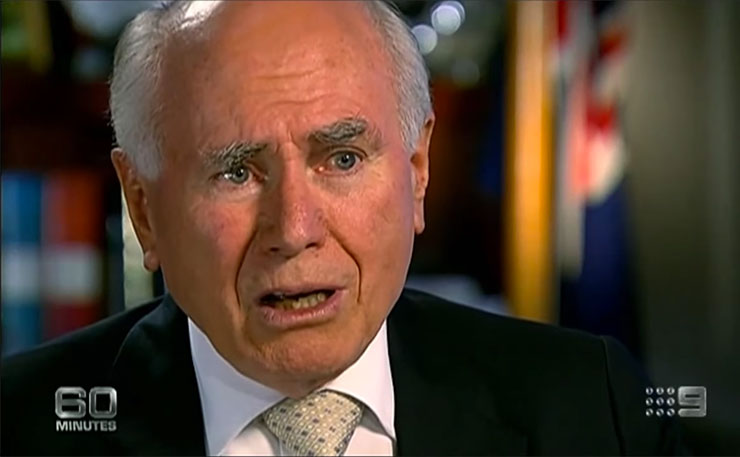
Indeed, she should be “respected” for being elected. He claimed that being too critical of Hanson would make her more popular. He apparently didn’t notice her 18 years in the political wilderness, and her manifest unpopularity for those many years.
This line was eagerly embraced by others. Margo Kingston was applauded a few months ago by right-wing bloggers like Tim Blair for announcing on twitter her anxiety about Muslims coming to Australia. The Guardian gave her space to opine about how “nice” both Hanson and her supporters are. Kingston identified the “fears” of One Nation voters about Islam as “natural, and understandable”. Kingston then appeared on ABC Radio with Patricia Karvelas to discuss “Why we need to listen to Pauline Hanson”.
This was followed by Media Watch, which presented a segment where they also recommended the media stop mocking Hanson. They favourably quoted advice that the media learn how to report on her “without interventionist negative commentary”.
Mamamia gave a sympathetic interview to a One Nation voter. Peter Hartcher, the influential centrist-in-chief at Fairfax, embraced the by-then standard media wisdom on Hanson. He applauded Howard’s approach of not criticising Hanson in the ‘90s, claiming that the best way to deal with her was to not attack her, to address her voters “grievances”, and to co-opt her supporters with “policies that [appeal]to her constituency”. Whilst Hanson “unfairly blames Islam and all Muslims by association”, she “points to a real problem”.
A particularly unfortunate contribution came from ECAJ, the national peak Jewish organisation. Writing in the Australian, ECAJ head Peter Wertheim identified Hanson’s views as akin to racism and bigotry, but took the opportunity to criticise the supposed racism of groups like Muslim Village and the Islamophobia Register Australia.
Wertheim went on to defend the legitimacy of Australian “ill feeling towards Islam”. After all, “it is also true that Islamist terrorism draws on authentic, deeply rooted Islamic traditions of proselytisation and religious supersessionism — the fulfilment of its self-designated mission of bringing the whole world under its dispensation by means that do not necessarily exclude the use of violence, fear or deception. The public’s instincts about this phenomenon are far more astute than the ludicrous intellectual contortions of those who insist that the actions of Islamists have nothing at all to do with Islam.”
He proceeded to the more or less standard media line, warning that we should not “dismiss the concerns” that have “propelled Pauline Hanson back into the federal parliament.”
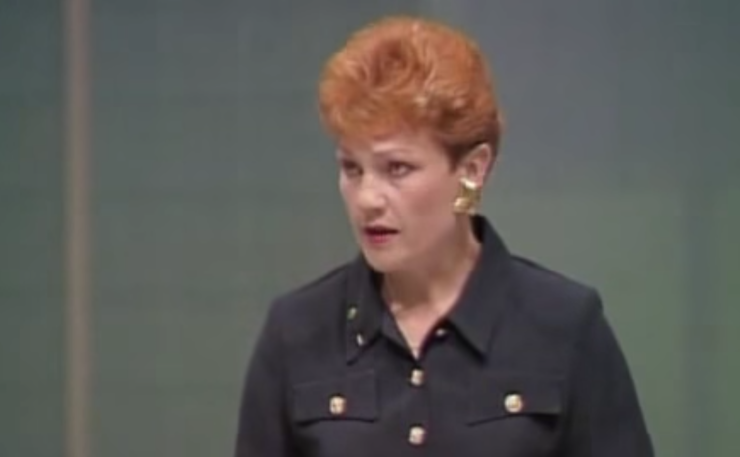
Wertheim’s dreadful comments will harm relations between Jews and Muslims in Australia. Where he could have straightforwardly opposed Hanson, instead he chose to advance narrow political arguments.
Likewise, Fairfax columnist Julie Szego applauded the position of Kingston against being too critical of Hanson. Szego identified Hanson’s calls for banning mosques, Muslim immigration and having a royal commission into Islam as racism and bigotry. However, “the public should not flinch from debating ‘Islam’, for want of a more precise designation, for fear it might bolster Hanson’s agenda.”
Szego concedes that Hanson previously targeted Asians, but notes an “obvious difference between the prejudice against Asians then, versus the prejudice against Muslims now: these days a small number of Australian Muslims are a public threat. The prejudice of Hanson redux is more potent because it feeds on rational fears about terrorism.” Where fear about Asians was entirely irrational, fear about Muslims is “potent”, because it was not simply prejudice.
The Coalition was undoubtedly pleased by the softening of the media line on Hanson. Turnbull’s government has a razor thin majority, and faces an unwieldy senate. They will need One Nation support to get at least some measures through. Thus, the Nationals Resources Minister Matthew Canavan warned against insulting Hanson.
Prime Minister Malcolm Turnbull had a meeting with Hanson in late July, which pleased her greatly. Hanson bragged a few weeks later that “I’ve had phone calls from George Brandis and Scott Morrison and Michaelia Cash. I have had a meeting with her. They are all phoning me”.
Tony Abbott invited Hanson for a coffee. The rehabilitation of Hanson progressed as Deputy Prime Minister Barnaby Joyce announced that he supports the Queensland Liberal National Party’s plan to “preference One Nation ahead of Labor and the Greens at the next state election”.
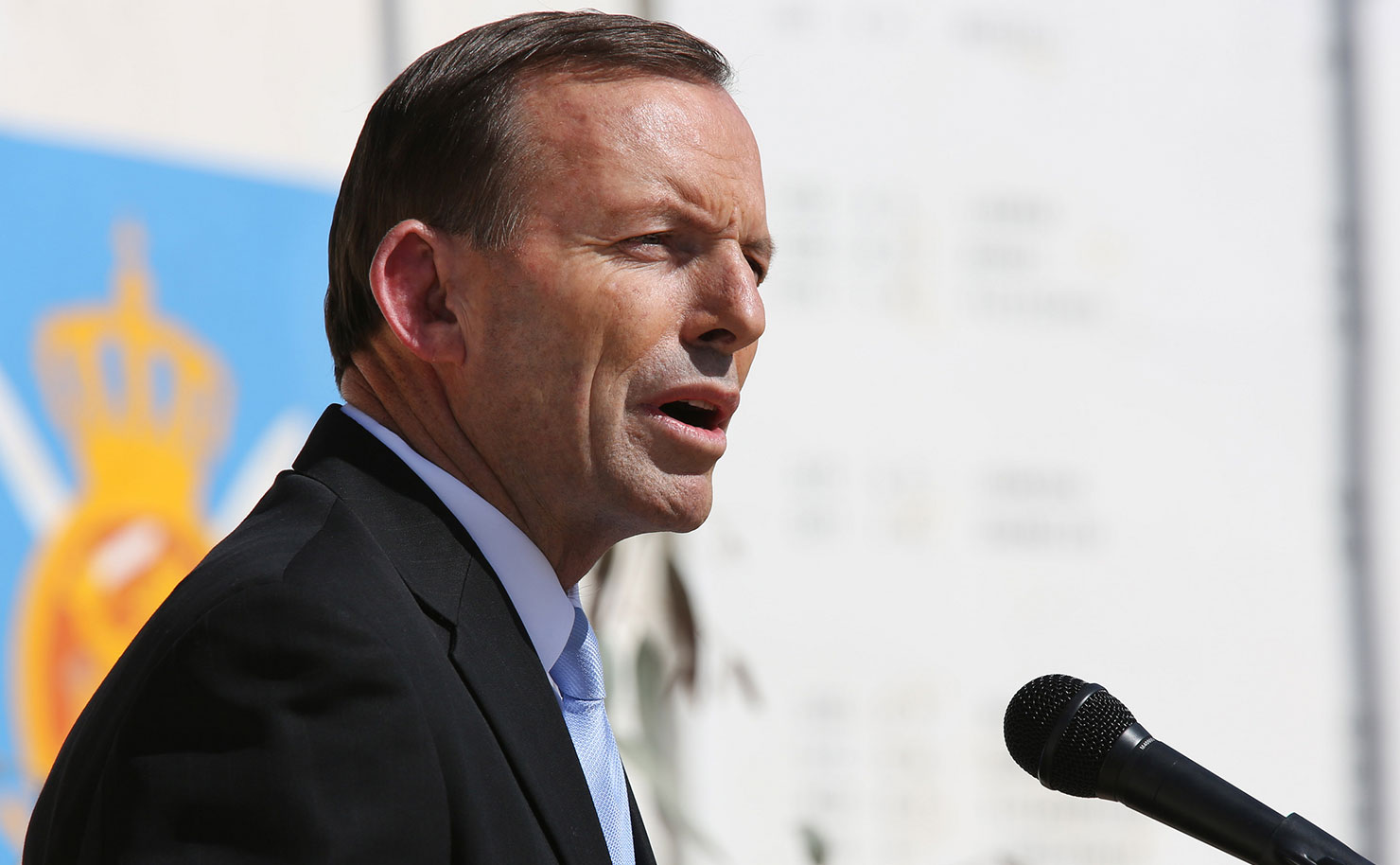
On 30 August, Hanson returned to Parliament. News.com.au commented that “politicians have wasted no time to network with new Senate member Pauline Hanson whose new powers could be crucial.” She can be seen laughing with Cash, and chatting with Cory Bernardi, and Immigration Minister Peter Dutton. And who would blame any of them? The media is apparently opposed to any attempts to shame or criticise Hanson, so it stands to reason that politicians building relationships with her are acting reasonably.
Perhaps the final nail in the coffin in media scrutiny of Hanson was provided by 60 Minutes. Where once it had featured Hanson’s famous “please explain” gaffe, in a generally probing profile, now it produced a 20 minute promotion, devoid of a single probing exchange.
Bolt gloated that the program treated her “with respect and even affection”. Journalist Liz Hayes “did not dare mock Hanson”. Bolt noted with great justice that “what went out tonight was gold to a political leader who for years was treated like a pariah, a joke and a bigot. Hanson got a media advertisement and an endorsement bigger – or more telling – than any before in her long political life.” If you want “a signal of which way the media winds are blowing, this was critical”.
It appears anti-Muslim bigotry is considerably more acceptable today than anti-Asian bigotry was in the ‘90s during Hanson’s original rise. Where the political and media elite once marginalised and stigmatised Hanson as beyond the pale, now they have reached something like a consensus on the legitimacy of Hanson’s views.
That consensus is roughly as follows. Hanson is not an ignorant bigot. She is someone with reasonable concerns, but unrealistic policy suggestions, some of which may be bigoted. She should not be insulted, mocked, nor unduly criticised.
The effect of this media consensus is the legitimisation of Hanson’s concerns about Muslims. It paves the way for future policy suggestions by the Coalition to address those concerns, which the media can duly acclaim as moderate and realistic.
I have little doubt that if and when that day comes, media elites will applaud themselves for their thoughtful and responsible response to Pauline Hanson.
Donate To New Matilda
New Matilda is a small, independent media outlet. We survive through reader contributions, and never losing a lawsuit. If you got something from this article, giving something back helps us to continue speaking truth to power. Every little bit counts.

